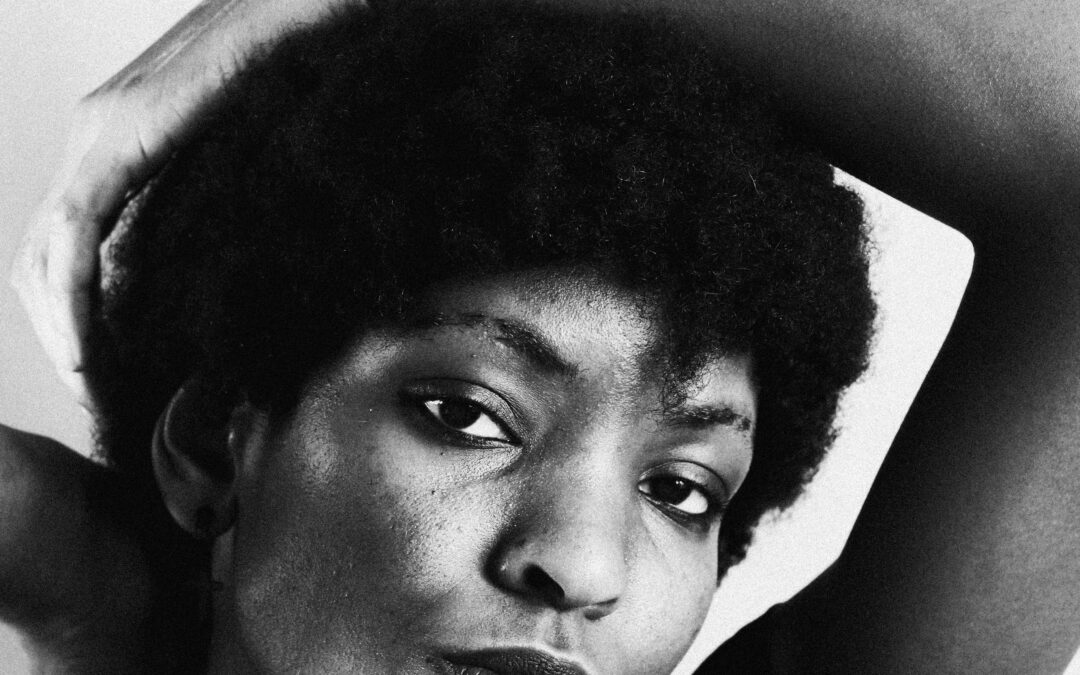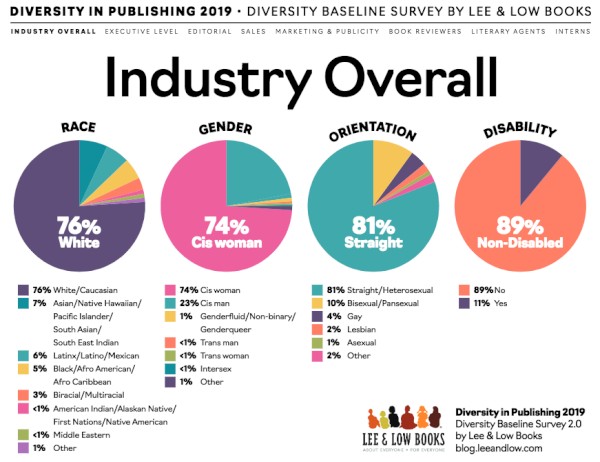The traditional publishing industry can be a challenging space for most black authors to navigate. As recently as 2019, a Lee and Low survey showed that the publishing industry was 76% white, with only 5% of the industry’s staff being black.
The lack of diversity in the publishing industry contributes significantly to the problems faced by black authors: having a lack of representation, being tokenized and pigeonholed, and receiving less funds and attention in marketing and promotion. Even with the industry slowly making changes for the better, black authors still face these problems.
Before 2019, the whiteness of the publishing industry hovered at around 89% since 1994. So, dropping to 76% in 2019 seems like a huge improvement; yet, according to Lee & Low, of the 7,288 books published that year by the U.S.’s top 34 publishers, only 5% of those books were published by black authors.
While we need more people of color working in the industry, Lee & Low’s results show that diversifying the industry is not the complete answer. Since the industry is largely driven by consumerism and giving readers what they want, we also need savvy professionals in the marketing and promotional departments who understand the nuances of the black identity and who understand that black people are not a monolith. In other words, we need people who can connect black books with black audiences. And beyond. Because black authors’ work, just like any other work, can have more than one market.
“We also need savvy professionals who understand the nuances of the black identity and who understand that black people are not a monolith.”
We need evangelists.
We need evangelists like Cree Myles, who is working with Penguin Random House to “glamorize black authors.” Myles is the curator of the Instagram account @AllWaysBlack, and she understands that blackness is a very nuanced experience. She is dedicated to highlighting and celebrating black authors and their readers.
We also need champions like Cerece Rennie Murphy and Karama Horne, who are on the frontlines of helping black creators grow their audiences through initiatives like VirtuousCon and through their own work.
In the end, diversity is important, and we need more of it in the publishing industry. But marketing is just as important, and we need people who know how to sell black books.


